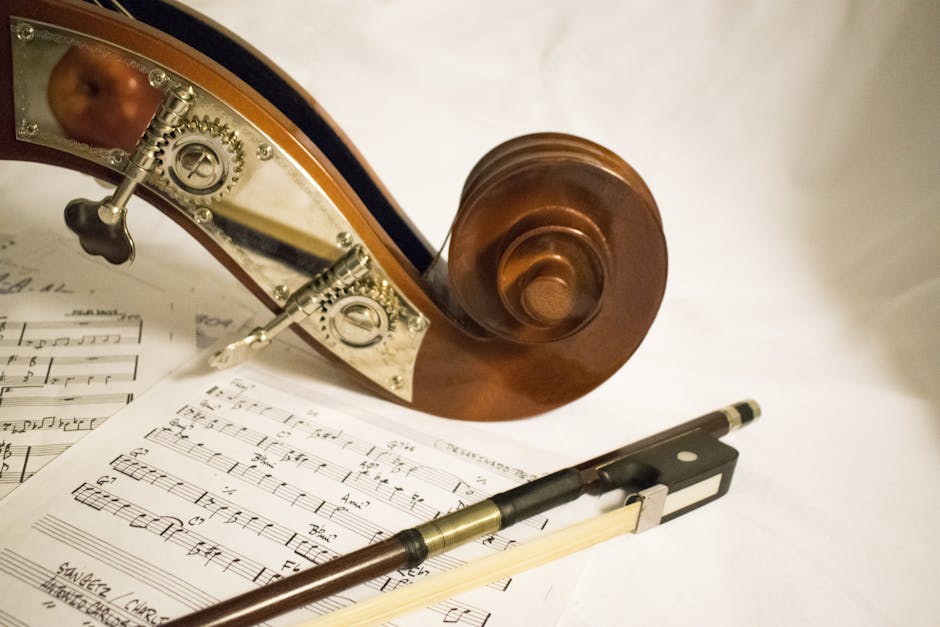Best Rosins For a Beginner Violin Player
Choosing the right rosin is essential for any beginner violinist, as it significantly impacts the sound production and the ease of playing.
As a beginner, you might be wondering, what is rosin? Rosin is a small, often overlooked but incredibly vital, component in stringed instrument playing. It is derived from pine trees and applied to the hair of the bow to create friction against the strings, which in turn produces sound.
Remember, a good start is always half the battle! So let's dive in and find the best rosin for you to start your violin journey.
Understanding Rosin: A Brief Overview of What Rosin Is and Its Role in Violin Playing
Rosin is a sap-like substance derived from pine trees. It is made by harvesting the resin, melting it and applying to pressure form a sticky wax-like material. This material is then applied to the hair of the bow in order for it to create friction against the strings when playing. The friction produced between these two objects generates sound and amplifies or reinforces it.
Rosin is an essential element in violin playing that often goes unnoticed, especially by the beginners. Essentially, it's a hardened tree sap, usually from pine trees, pressed into small cakes or blocks. It may seem trivial, but rosin serves a grand purpose in the life of a violinist.
The magic of rosin lies in its ability to create friction. When applied to the horsehair of a violin bow, it causes the hair to grip the strings rather than sliding over them. This friction is what makes the strings vibrate and produce sound. Without rosin, a violin bow would make little to no sound when drawn across the strings.
In essence, rosin is crucial in translating the movements of a violinist into the rich, resonant sounds from the strings. The quality, type, and amount of rosin used can significantly influence the tone and volume of your instrument, making it a key factor in honing your violin skills.
Why Rosin Matters: Explaining the Impact of Good Quality Rosin in Producing a Quality Sound
<
Rosin is at the heart of great violin playing. It may seem like a small detail, but this little block of rosin has the potential to generate the beautiful sound that every violinist hopes to create.
Good quality rosin can drastically improve the quality of your sound.
- It provides grip, allowing each stroke of the bow to produce crisp, clear notes. Without it, your bow would simply slide across the strings, leaving you frustrated with a feeble, intermittent sound.
- A well-chosen rosin can also help to enhance the unique character of your violin, accentuating its resonance and adding depth to its tone.
- In essence, the right rosin breathes life into your instrument.
Thus, as a beginner or a professional violinist, never underestimate the impact of quality rosin. It truly makes a world of difference.
How to Choose Rosin: Considerations When Deciding on a Rosin for Beginners

Choosing the right rosin for your violin can significantly affect the playability and sound quality of the instrument.
When making your selection, consider these components:
- Firstly, take into account the rosins' hardness. Hard rosin is suitable for smaller stringed instruments, like violins. It provides a sharper, brighter tone—perfect for beginners.
- Secondly, note the type of climate you play in. A harder rosin is ideal for hot climates, whilst softer rosin works well in colder climates.
- Lastly, go with tried and trusted rosins and have excellent reviews from users and a high recommendation from the experts.
Remember, the perfect rosin for you may take some trial and error to find. Be patient in your quest to find the right blend that suits your instrument and playing style.

Best Rosins for Beginner Violin:
D’Addario Kaplan Artcraft Rosin
Formulated from the original recipe created by the great American violin maker Ladislav Kaplan, D’Addario Kaplan Artcraft Rosin is a premium rosin that's a top choice for beginner violinists.
- One of its key features is its easy application. As a beginner, you don't want to deal with complex processes - ease and simplicity are vital. This rosin is also light, providing smooth playability, essential for those new to the violin.
- Using natural ingredients, D’Addario rosin ensures less dust, enhancing the look of your instruement while maintaining professional sound quality.
- The clutch, a protective case that aids in the durability and longevity of the rosin, increases the convenience factor for beginners. Also, it ensures no mess during use, essential for those gaining skills.
D’Addario Kaplan Artcraft Rosin affordability is also a bonus. It offers professional-quality features at a reasonable price, making it a suitable pick for new violinists. The combination of quality, convenience, and affordability is the reason why it's a top choice for beginners.
So, whether you're starting violin lessons or buying your first instrument, D’Addario Kaplan Artcraft Rosin should be your top consideration.
Hill Brand Dark Rosin
Hill Brand Dark Rosin has long been a staple among both beginning and seasoned string players. Being a darker rosin, it offers superb adhesion, ensuring a more secure grip on the bow strings. This allows for a smoother playing experience - something beginners would surely appreciate.
This rosin not only provides a warm, clear tone but its circular shape also makes it remarkably easy to apply. Plus, it's less sensitive to humidity, extending its lifespan.
For beginners in violin, Hill Brand Dark Rosin makes an excellent choice. It's no wonder why it garners high user reviews and recommendations. Less effort, more music - that’s what Hill Brand aims for. This rosin is often chosen by beginners and professionals alike and is usually a good choice because it's an excellent compromise between hard and soft rosins and is easy to apply the amount you want on your bow and thus making it easier to get the sound and performance you want out of your bow. It's a little pricier than it's D'Addario counterpart but many people feel it's worth the extra cost.
L'Opera Jade Rosin
Jade L'Opera JADE Rosin is highly sought-after in the violin community, especially among professionals. The quality of this rosin is undeniable, contributing to smoother bowing and a more refined sound output. It works efficiently to provide a firm grip on the violin strings.
One of the key benefits of this rosin is its capacity to minimize dust, thus promoting keeping your violin clean. It's a bonus that it comes in a compact, sleek case for easy transportation and storage.
Above all, its suitability for players at different levels sets it apart. It's easy to apply, enhancing the playability of the violin without dampening its tonal quality. This makes it an excellent choice for learners who are still coming to grips with learning new bowing techniques. Jade L'Opera JADE Rosin is certainly a go-to rosin for many players. However, it is often regarded as an "aggressive" rosin, so if you are using it for the first time, you should test how the bow functions before applying a large amount to the bow. You get a lot of mileage out of this particular rosin and it's a really cool green color as well!

How to Apply Rosin to a Bow for Beginners: A Short Guide
Beginning to rosin your bow may seem intimidating, but don't worry! Here's a simple, step-by-step guide to help you out.
- First, take the cake of rosin and scuff it lightly with sandpaper. This will help make the surface sticky, allowing for better adherence. Next, get your bow. Hold the tip of the bow in one hand, and with the rosin in the other, attach the two. You can scratch the surface of the rosin with a fork or a knife as well but be careful. It's easy to break the rosin if you're not careful.
- Run the rosin back and forth across the length of the hair, making sure to distribute it evenly. Don't rush; slow, thorough motions are key to a successful application. Make sure you don't "speed up" the bow motion at the frog and the tip when applying. This is a common mistake made by many players. This heats the rosin up and makes it hard to apply to the bow.
- Lastly, play a few notes to check if you've applied enough. If the sound isn't clear, apply a bit more rosin. Remember, patience is crucial in this process. You're learning, and that takes time. Keep practicing, and soon, rosining your bow will be a breeze.
















